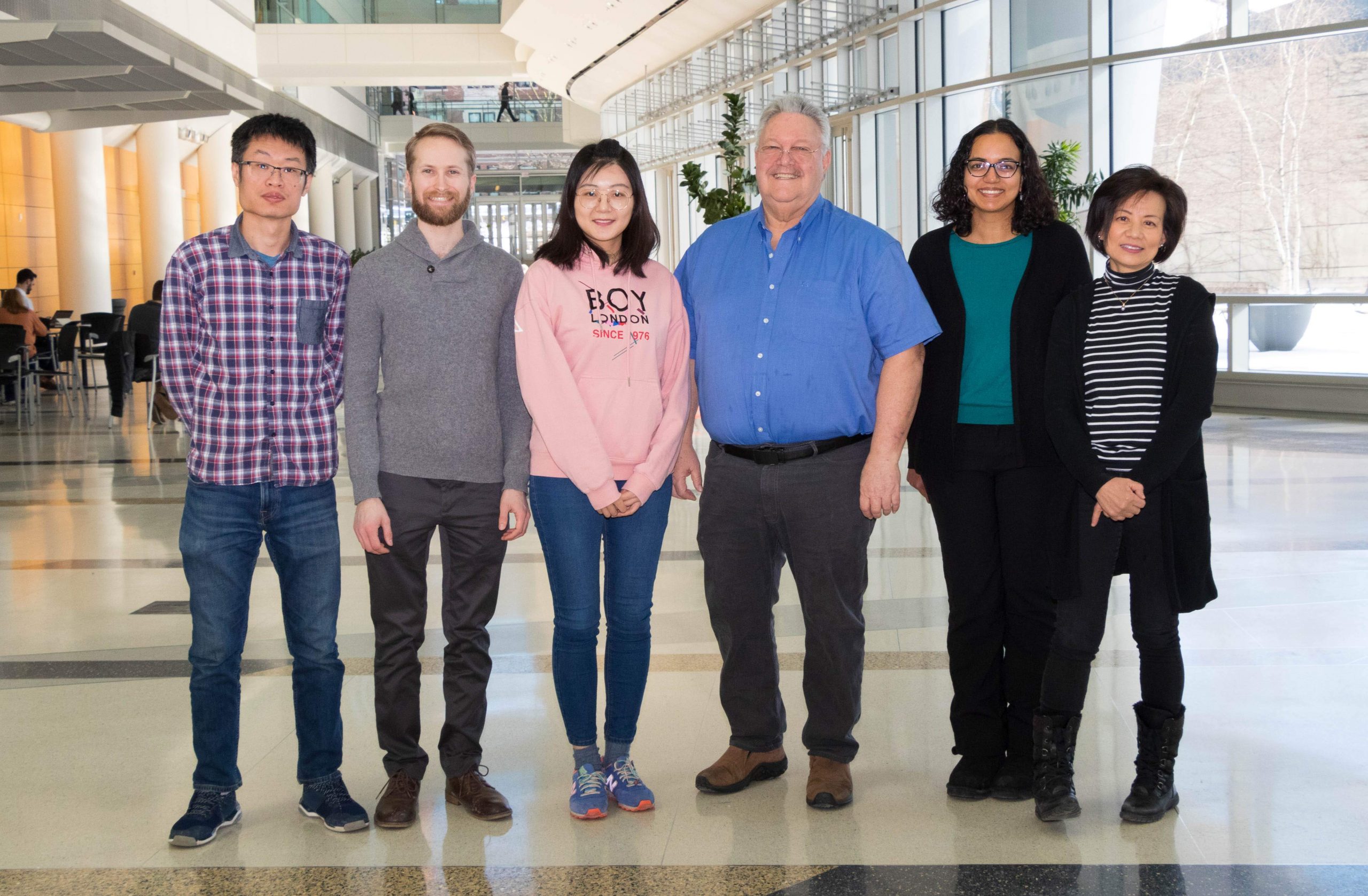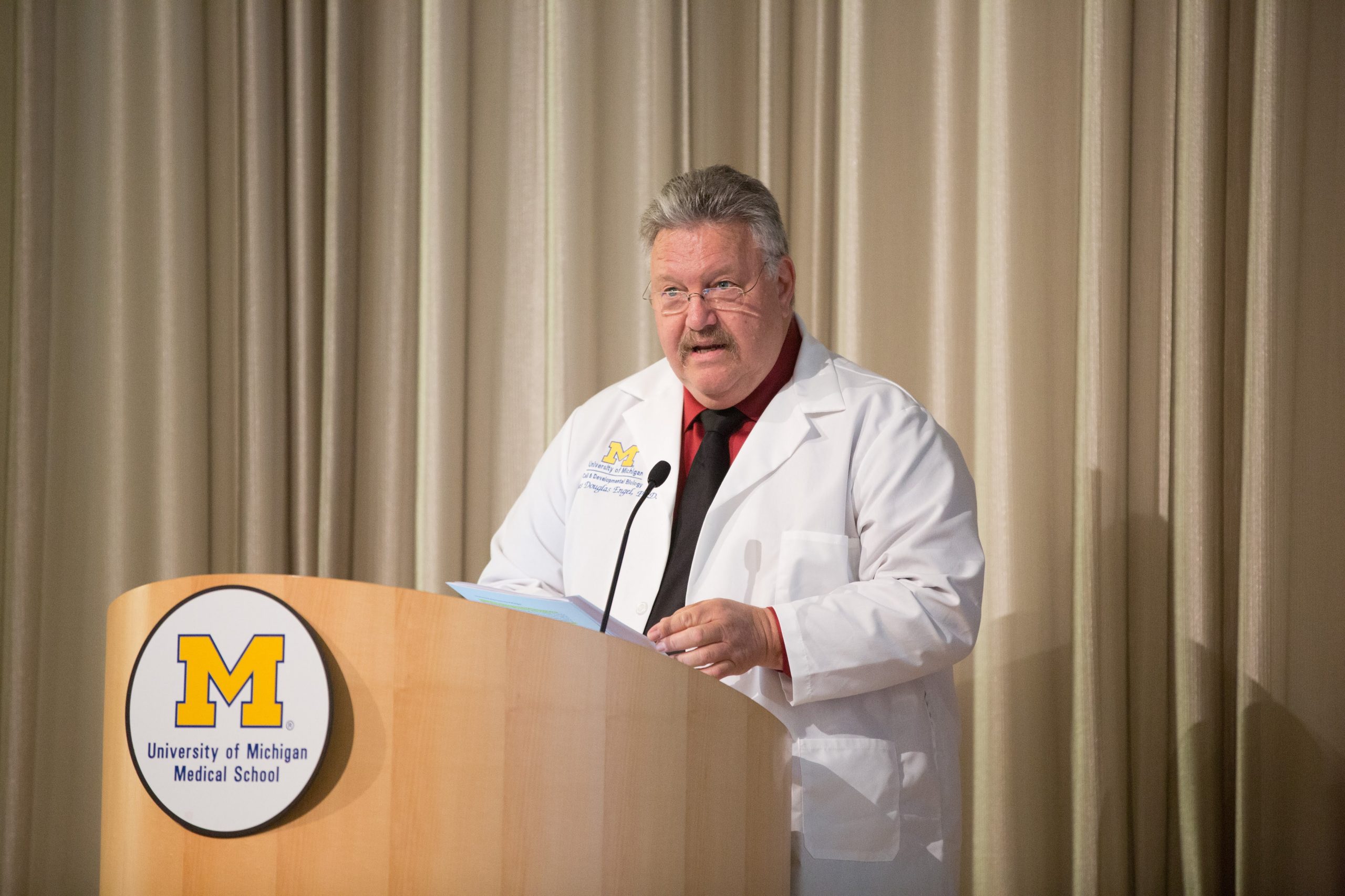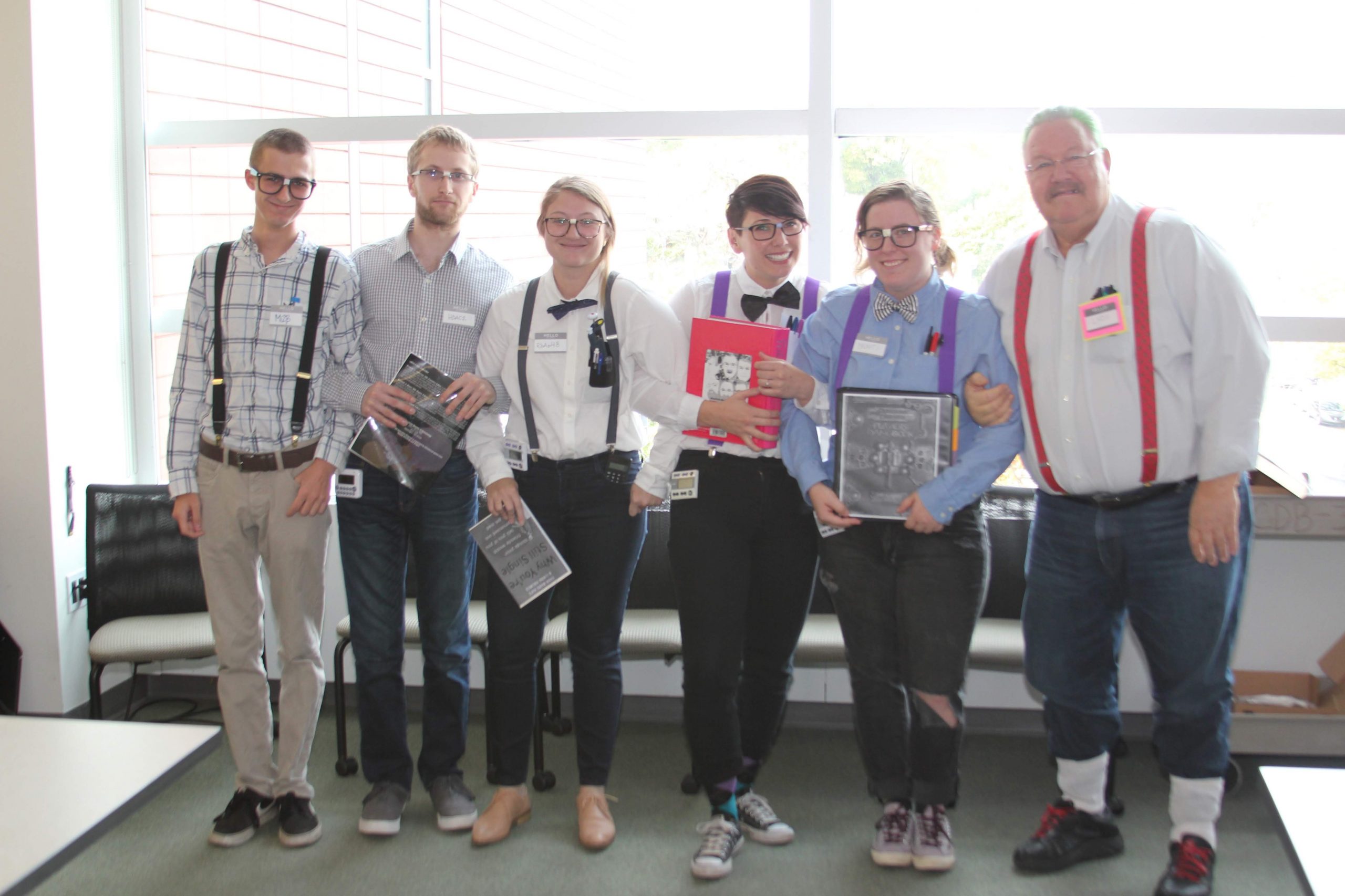About Doug Engel Lab
Our lab is devoted to understanding the transcriptional regulatory mechanisms that control two vital developmental processes: 1) differential globin gene activation during human development and 2) the underlying mechanisms by which thymocytes develop to become mature T cells.
Our longest standing interest, in globin gene switching, has revealed specific DNA-binding repressors and associated epigenetic co-repressors that differentially regulate expression of the fetal (𝛄-globin) genes during human gestation. We are in the process of synthesizing and testing new inhibitors of a subset of these co-repressors as a therapeutic strategy to elevate the expression of 𝛄-globin in individuals suffering from sickle cell disease and/or β-thalassaemia.
We are also investigating how the earliest T lymphocyte precursors acquire their characteristic phenotypes, developing from an uncommitted hematopoietic precursor cell (called an ETP, for early thymocyte progenitor) to a cell released from the thymus into the circulation to finally mature and become a critical component of cell mediated immunity. We have established that transcription factor GATA3, which my lab discovered in 1990, is vital for multiple developmental steps in thymocyte maturation. We continue to deeply investigate the roles played by GATA3 in thymocyte developmental transitions and its possible role in the most ancient and perplexing conundrum in immunology, called allelic exclusion.



